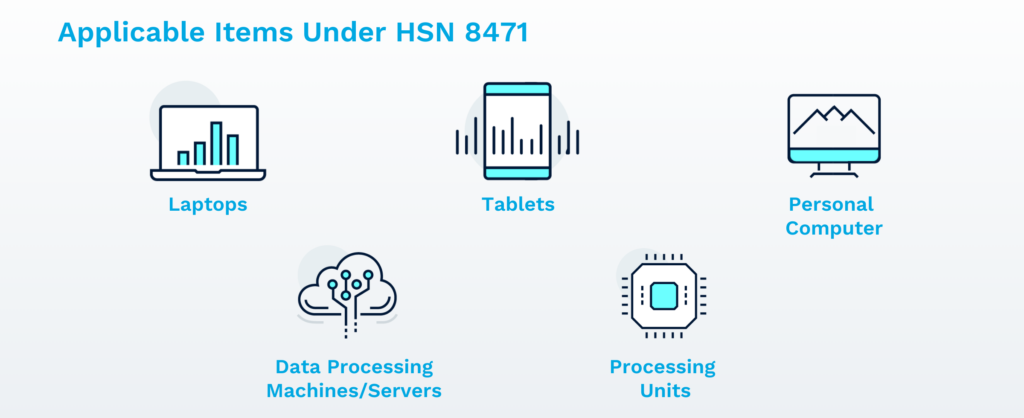In June 2023, the Indian government set off a significant debate by announcing restrictions on the import of certain IT hardware products. The move was part of a broader effort to promote domestic manufacturing and reduce India’s dependence on imports, with the government’s goal being to stimulate job creation and foster innovation in the Indian IT sector. However, this decision faced criticism from the industry, leading to a reevaluation of the initial plan.
The Initial Restrictions
India’s flourishing tech sector, coupled with a growing middle class, has led to a surge in electronic imports. While this growth is positive, it also highlighted the nation’s reliance on foreign manufacturers. The government’s initial plan to restrict imports aimed to address this dependency and stimulate domestic production.
However, the proposed restrictions drew criticism from various stakeholders, including global tech giants and domestic industry players. Concerns were raised about potential price hikes, supply chain disruptions, and the overall impact on the Indian tech ecosystem.
Reactions and Criticism
The initial plan received a mixed response, with criticism coming from various quarters, including global IT hardware manufacturers like Apple, Dell, HP, Lenovo, and Samsung, Indian consumers, and industry experts. The concerns were centered on the potential consequences of these restrictions, such as increased product prices and slowed industry growth. Following these objections, the initial plan was delayed three months.
A Shift in Approach
In response to the backlash, the Indian government made some notable changes to its strategy. The Indian government has decided to abandon the earlier plan to restrict laptop imports, acknowledging the objections raised by the industry and other concerns voiced internationally. Trade Secretary Sunil Barthwal announced in a press conference, “there will be no restrictions on laptop imports, but the government will pay close attention to the import situation.”
Government’s Import Restrictions Motive
The Indian government’s import restrictions on IT hardware were strategically designed to stimulate local manufacturing. The Performance Linked Incentive (PLI) Scheme-1, initiated in 2020, successfully drew investments in mobile and electronics manufacturing. Building on this success, the recent PLI Scheme-2, launched in August 2023, specifically targets IT hardware production. These measures not only incentivize domestic manufacturing but also mandate companies to establish manufacturing plants by offering special economic zones with incentives. This concerted effort aims to strengthen exports, particularly in laptops, tablets, and desktops by 2027. Simultaneously, these restrictions aim to regulate multi-brand imports by e-commerce resellers, granting global brands more control over local pricing and new product launches in alignment with technological advancements.
The New Import Management System
Starting from November 1, 2023, a new import management system came into effect. Under this system, companies are required to register the quantity and value of their imports. Import requests will not be rejected; the government will use the data for monitoring purposes only. This comprehensive approach includes amendments to the import policy for items classified under HSN 8471, such as laptops, tablets, personal computers, data processing machines, servers, and processing units, as outlined in the notification dated August 3, 2023 (DGFT Notification No. 23/2023). This strategy aims to enhance oversight, promote local manufacturing, and ensure the affordability of IT products while accommodating the industry’s growth.

India’s IT Hardware Import Policy: A Balancing Act
While the government’s initial restrictions were met with opposition, the revised approach, focusing on monitoring and data collection, demonstrates a willingness to balance economic objectives with industry concerns. This pragmatic shift, combined with the recent clarifications and updates to the import policy, could foster a more collaborative environment between the government and the IT hardware industry. This could lead to sustainable growth and development of the domestic manufacturing sector while minimizing disruptions to the Indian IT market.
Clarifications and Updates
The India Ministry of Commerce & Industry released Circular No 06/2023–24 on October 19, 2023, providing several clarifications for the import policy of IT hardware products.
The circular clarifies that the following IT hardware products are exempt from import licensing requirements:
- Exemption for units located in SEZ (Special Economic Zone), EOU (Export Oriented Unit), EHTP (Electronic Hardware Technology Park), STPI (Software Technology Park of India), and BTP (Business Technology Platform). Units located in these special economic zones are exempt from applying for a license to import IT hardware items.
- Exemption for IT hardware items imported for use as capital goods: IT hardware items imported for use as capital goods are also exempt from a license. This includes laptops and tablets accompanying machinery or capital goods, but only if they are not the primary capital good.
How Can Dimerco Help You?
Applying for the License
Importers of items under HSN 8471 are required to apply for an import permit license through the Directorate General of Foreign Trade (DGFT) website. Dimerco can provide expert guidance and support you throughout the entire paperwork and submission process.
The Indian government’s decision to shift from restrictions to close monitoring is a positive development for the industry. While the initial plan faced criticism from global IT hardware manufacturers, Indian consumers, and industry experts, the revised approach aims to strike a balance between promoting local manufacturing and ensuring the affordability of IT products.
For assistance navigating the complexities of these IT hardware restrictions, contact Dimerco and learn more about our India Freight Forwarding & Logistics Services.
Dimerco has written a comprehensive eBook on the Opportunities and Challenges of India Manufacturing, a practical guide to navigating the logistics, legal and trade compliance challenges of expanding manufacturing to India.
